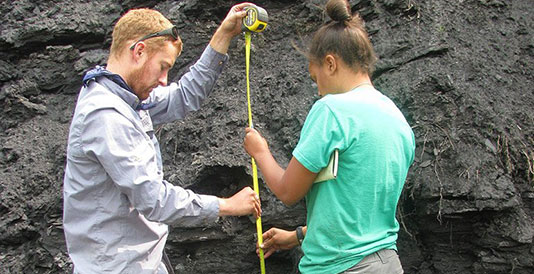 August 1, 2017 (Source: FSU) - There could be some good news on the horizon as scientists try to understand the effects and processes related to climate change. A team of Florida State University scientists has discovered that chemical weathering, a process in which carbon dioxide breaks down rocks and then gets trapped in sediment, can happen at a much faster rate than scientists previously assumed and could potentially counteract some of the current and future climate change caused by humans. The findings were published in the journal Scientific Reports.
August 1, 2017 (Source: FSU) - There could be some good news on the horizon as scientists try to understand the effects and processes related to climate change. A team of Florida State University scientists has discovered that chemical weathering, a process in which carbon dioxide breaks down rocks and then gets trapped in sediment, can happen at a much faster rate than scientists previously assumed and could potentially counteract some of the current and future climate change caused by humans. The findings were published in the journal Scientific Reports.
Scientists have generally thought that this process takes hundreds of thousands to millions of years to occur, helping to alleviate warming trends at an exceptionally slow rate. Rather than potentially millions of years, FSU researchers now suggest it can take several tens of thousands of years. It’s not a quick fix though. “Increased chemical weathering is one of Earth’s natural responses to carbon dioxide increases,” said Theodore Them, the lead researcher on the paper and a postdoctoral researcher at Florida State and the National High Magnetic Field Laboratory. “The good news is that this process can help balance the effects of fossil fuel combustion, deforestation and agricultural practices. The bad news is that it will not begin to counteract the excessive amounts of atmospheric carbon dioxide that humans are emitting for at least several thousand years.”












